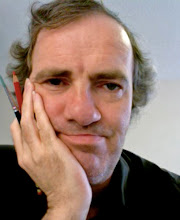For a couple of years, I loved the job, eating my heart out. I spent most of my time on research, studying the theoretical underpinnings of knowledge-based systems, and discovered the pleasure of teaching, taking a fistful of teaching courses myself, designing a new course for the new AI program, coordinating tests and exams, writing a syllabus, and on top of that I found pleasure in cooperating in the organisation of a workshop, editing proceedings, and the writing of a grant proposal.
All went well. The first couple of papers were accepted for publication, the new course was a success, and the department decided to offer it to all computer science students, the workshop proceedings were being published by Ellis Horwood, and the grant proposal was awarded, leading to a new project being started. And yet, I more and more got the feeling that I was being used.
The official version of the story was that, as an Assistent In Opleiding (AIO), I was woefully inproductive, which implied that I was not fully paid. More precisely, in my first year as AIO I received less than minimum wage, even less than my bursary plus salary from the days when I was a parttime teaching assistent. It started to nag me more and more that the department never gave me credits for my teaching, and my application for a real job was routinely rejected by the department. Also, when the Ellis Horwood proceedings were published, it became apparent that my supervisor had started a liaison with IBM: as an editor, I had been silently replaced by Thomas Wetter, an IBM researcher. More than once, colleagues of the Faculteit der Wiskunde en Informatica told me they considered me more a lecturer than an AIO, but, although the compliment felt good, it never translated into career opportunities.
In the meantime, the deeper I delved into the nooks and crannies of knowledge-based systems, the more I realised that much of the research in the Artificial Intelligence group was actually second-rate software engineering, semantics and logic, cleverly repackaged and sold as New, Amazing and Wow. Many people seem to believe that knowledge-based systems are no systems at all: I beg to differ. Attempts from my side to work on hard-boiled logic programming, semantics and temporal logic were sabotaged by my supervisor. The time spent on teaching and organising, and the increasing struggle to push my research through was now wreaking havoc on my planning: the end of my contract was approaching real fast.
The department choose the cheap route, which was not unusual in those days. Instead of offering me an extension, they decided to dump me into unemployment. As a sign of good intentions, I was granted use of my office at the university. I kept doing research for about one year, with less and less enthusiasm. When I asked attention for the issue in a usenet discussion group nl.aio, I realised it was not just my supervisor I had problems with, as my posting was almost immediately removed from the servers by the department's system administrators. A short discussion with a Human Resource manager from the Vrije Universiteit made it clear that the university did not intend to help me finding a job at the university or its hospital as system administrator, database administrator, web designer, scientific programmer or instructor: I had served my purpose as a cheap labour force.
Every now and then, I have to chuckle when I remember that day. Years later, a professor at the Vrije Universiteit invited me to apply for a job as scientific programmer: he told me he was having a hard finding a good candidate. I still believe that Human Resource Management at the Vrije Universiteit is totally incompetent, at the edge of being corrupt. They seem to be more concerned about their position within the organisation, than about providing services to that same organisation.
To wrap it up, I decided to not finish my thesis and I left. I was not the only one: none of my fellow AIOs from Jan Treur's Artificial Intelligence group finished his or her thesis there. I had expected to never look back to my time at the Vrije Universiteit, but it was exactly the story of the wise men that called for my attention, and brought back not-so-good memories.
23 hours ago








